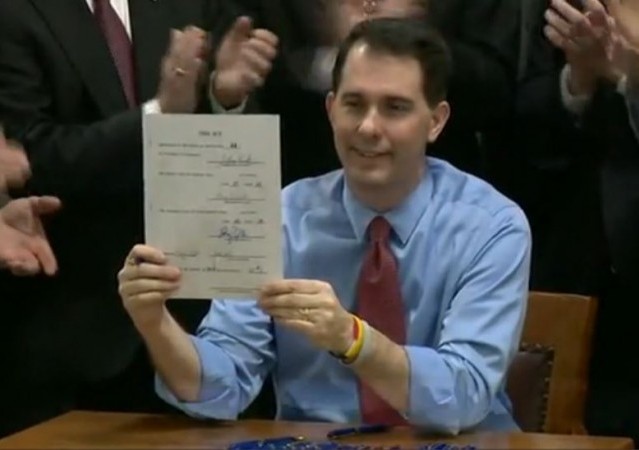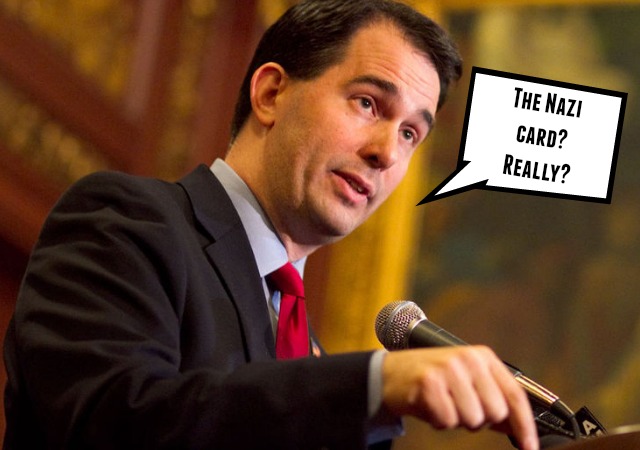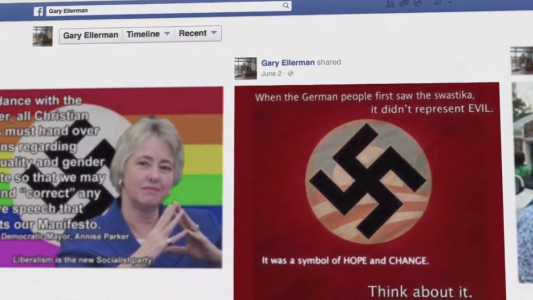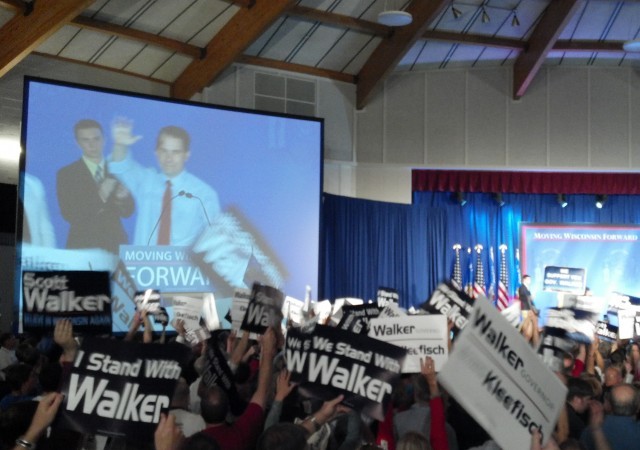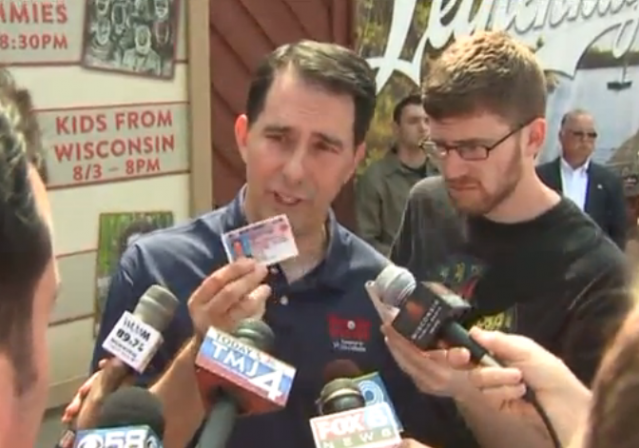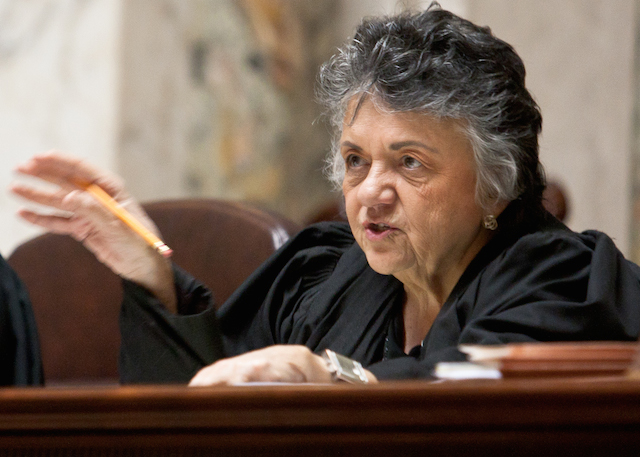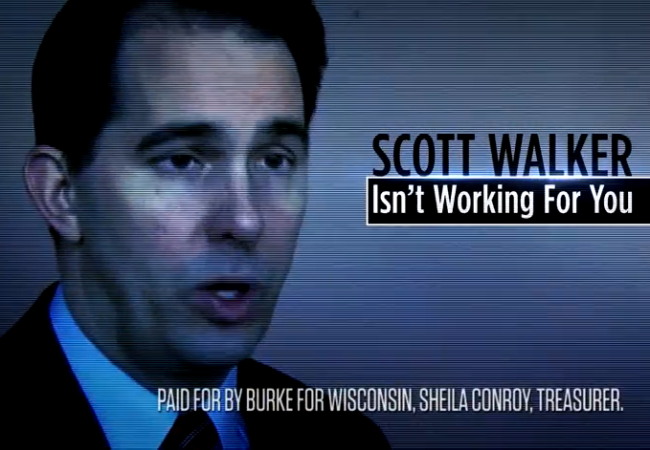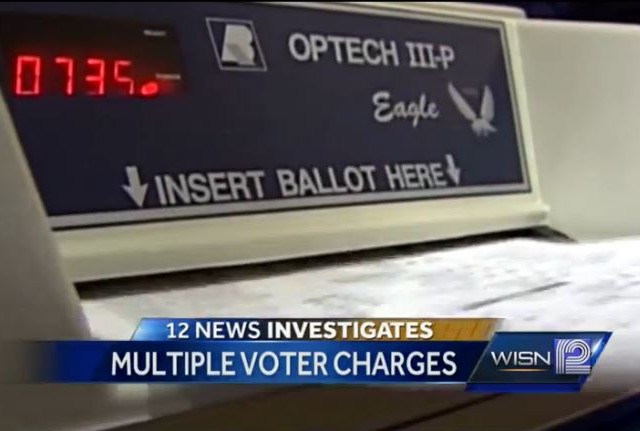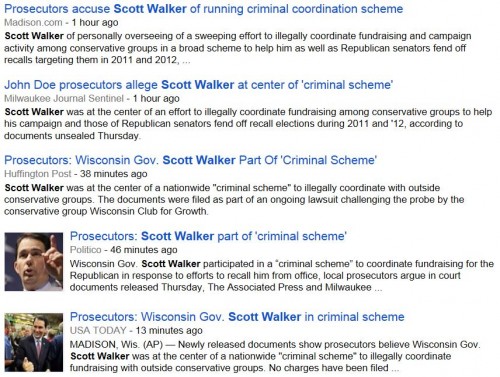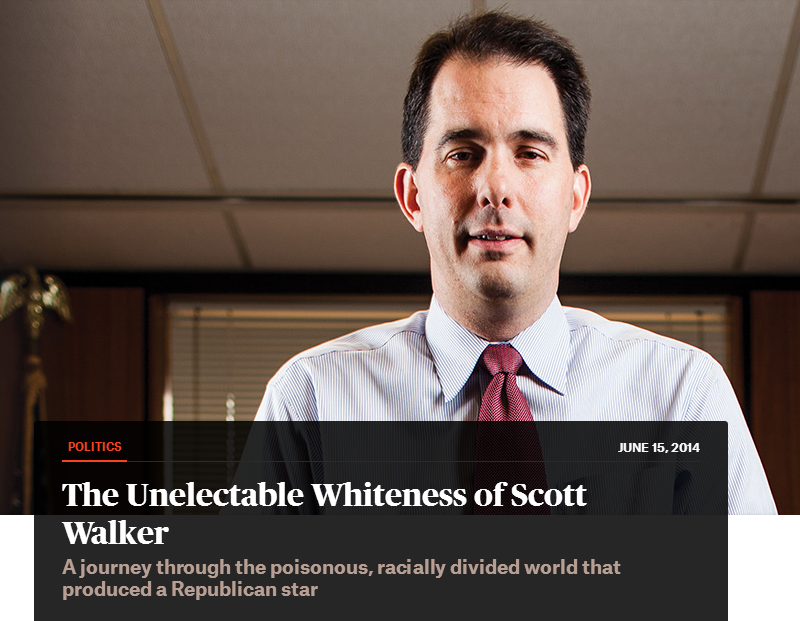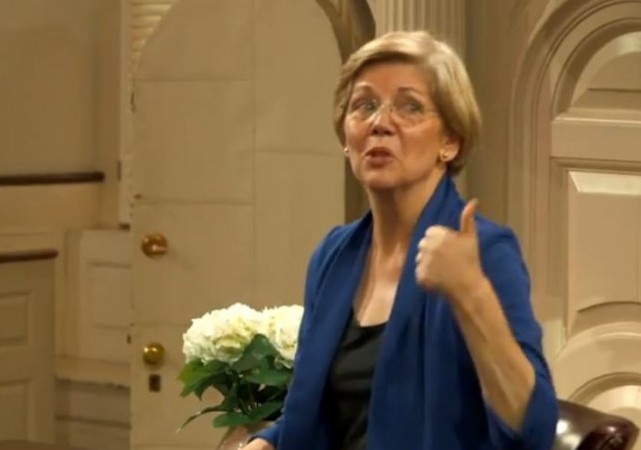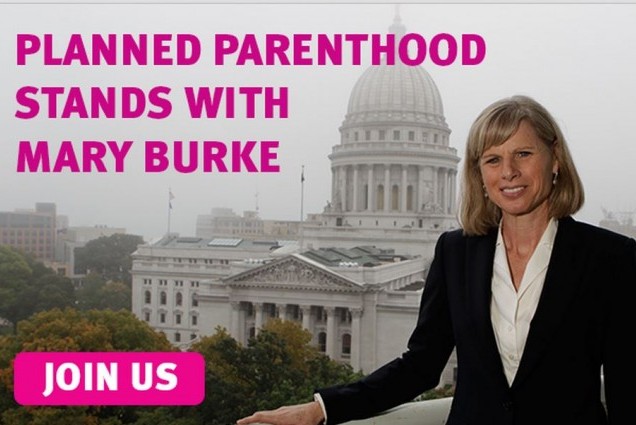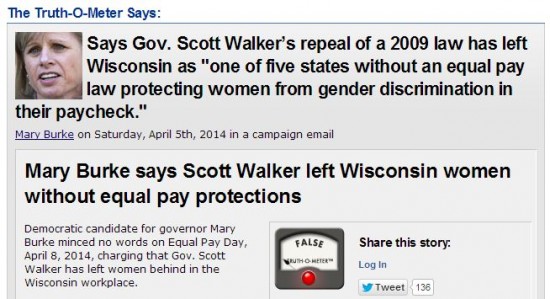Some people.
The first image is an Anti-Scott Walker protester who, along with a friend, locked her head to State Capitol railing in June 2011 in a budget protest, via
JSOnline. The police broke the lock and released her.
At the time we noted there was a simpler solution:
Turn out the lights, lock the doors, and go home. And leave them there.

The second image is from the anti-Israel "Block the Boat" protest in Tampa this weekend, via Twitter account
Global Revolution TV. Presumably, she too was unlocked by police:
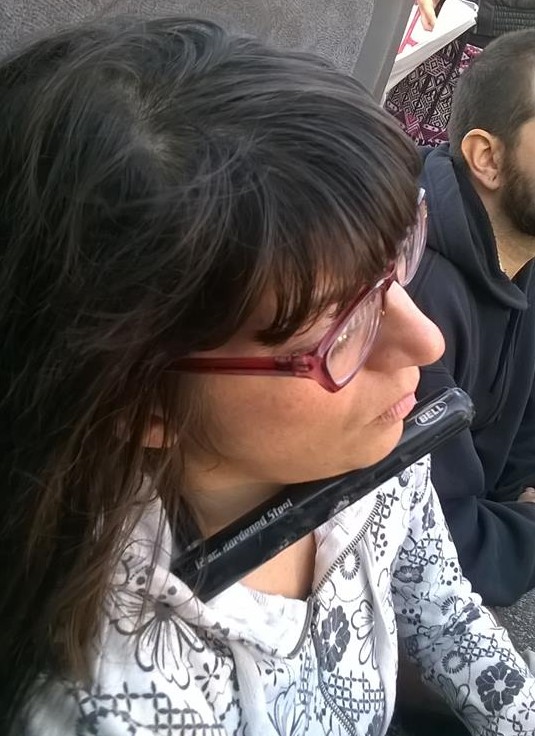
Here's the view from another angle, via Twitter user
RadicalMedia_:

